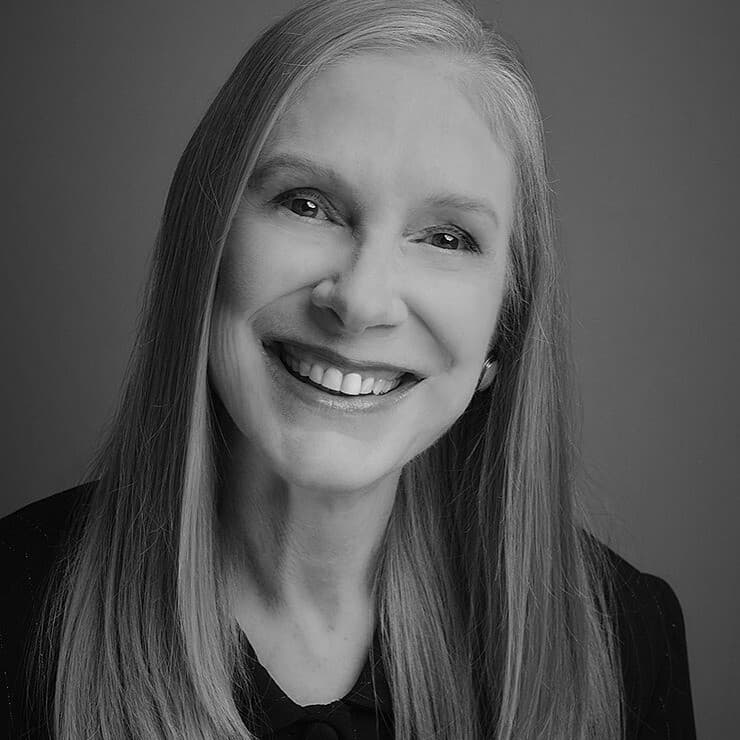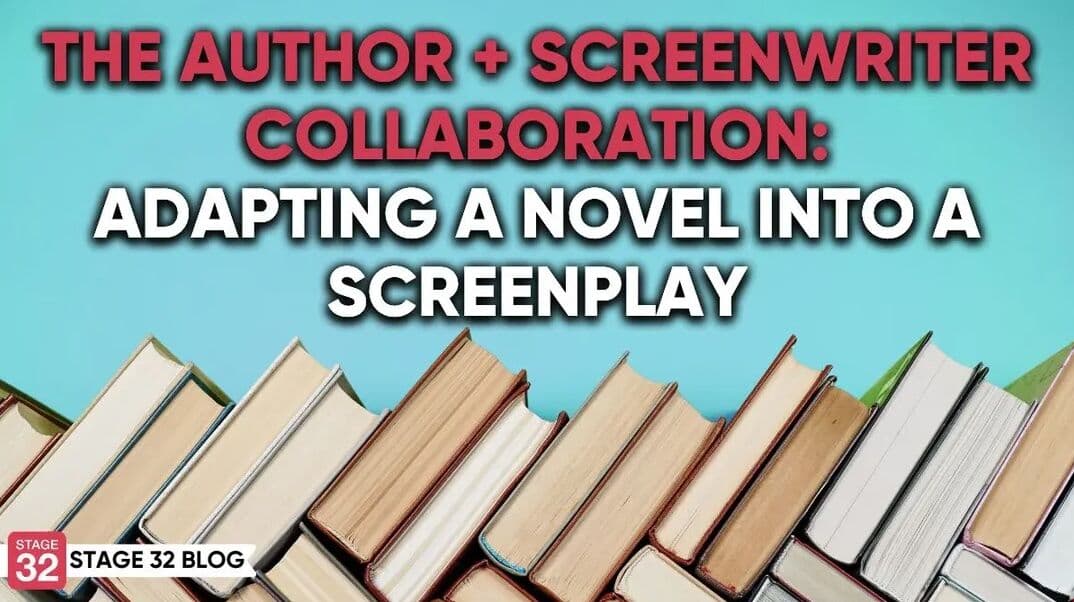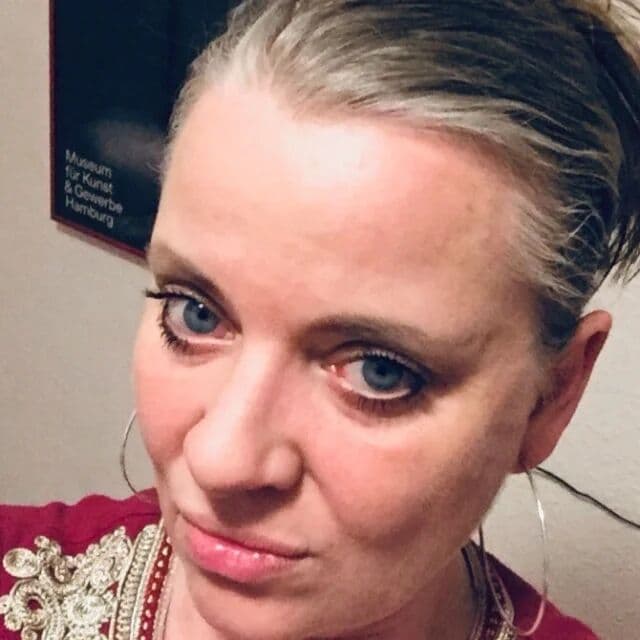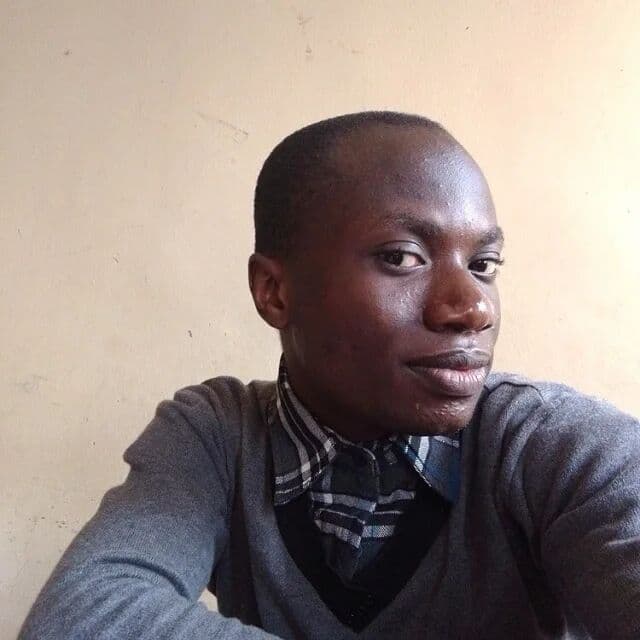How Stage 32 Helped Me Accomplish My Goals: Sometimes It Takes Years... Until It Doesn't

How Stage 32 Helped Me Accomplish My Goals: Sometimes It Takes Years... Until It Doesn't

I wrote my first screenplay in my mid-twenties when Syd Field’s Foundations of Screenwriting was the major go-to for the craft. “Spa Wars” was a parody steeped in small-town politics and, of all things, an ongoing economic rivalry between two competing health clubs. Really tacky stuff. I requested script notes from Sam Havens, Professor Emeritus at the University of St. Thomas in Houston. Solution: rewrite the damn thing.
I did what most mystified young screenwriters do—chalked up the project as curiously unsalvageable and started another script instead. I don’t remember a lot about the second one because it came on the heels of a divorce, but the members in my informally arranged table read said “Driver” incorporated a lot of explosions. I vaguely recall wanting to craft an action/drama portraying the temptation of Christ set in the modern day. That script won first place at a regional writer’s convention in Beaumont. I was also remarried by then to the kindest man in the world, where I could finally step away from my day job and get a good running start. I was pregnant too.
During gestation, I wrote like a crazed cow on steroids. When I wasn’t swimming, I was writing. I cranked out a self-help book on divorce recovery. A three-act comedy for stage. Staged it, directed it, ran the lighting board. All in the tiny community of Mena, Arkansas. Since my degree was in journalism, I also contributed articles to the Mena Star as they came along. I wrote a short story set in Mena that won the Writer’s Digest 1999 Grand Prize.
Part of my prize was an all-expenses-paid trip to the Maui Screenwriter’s Convention. Shit. I needed to write another screenplay!

I Got One For Ya!
I got one for ya, Mena Star’s then chief editor, John Corbitt, told me. Plunked a cardboard box brimming with files on his desk. Here’s a true crime. Russell wanted me to do something with it, it’s one of his. But I can’t really write fiction, you know?
The case that Russell Welch had handed off to John was a parricide. He got the kids off on self-defense because the abuse was so extreme. I went to interview Russell with a thick, three-ring binder of color-coded notes. I’d studied up.
He seemed impressed, and politely rushed through my questions regarding that case, enough for me to ultimately craft the psychological thriller “Grave Jumper.” Kids kill dad. Dad comes back. We seen him around in these hills, yeppers.
That day, Russell spread a large roll of butcher paper over his Formica dining room table. Took out a Sharpie. I’m going to show it to you in a timeline, okay? What happened when I investigated drug-running at Mena Airport. He then opened the door to his son’s old room and evidence boxes stacked to the ceiling. You see, it wasn’t just Barry Seal. It was way more than that.
I polished “Grave Jumper” to the nines with my first editor (for the self-help book) and lifelong friend, June Ford. I dragged out my next quarterly issue of Hollywood Creative Directory and started seriously shopping a script for the first time ever. Learned how to send emails and rock a baby simultaneously. That sort of stuff.
I started attending USC Screenwriting Professor Rich Krevolin’s writing workshops in Oklahoma City whenever I could, a roundtable of screenwriters crafting pages. Always more pages.
I got a call one day from Peter Saphier, one of the producers of the 1998 film Black Dog. No, I can’t handle your script right now, but I wanted you to know it’s good. If you don’t already have a manager, contact Jeff Ross. He’s getting started in the industry and doing some good stuff. Tell him I sent you, okay?
By that time, Jeff had been in business for twenty years.
I signed with Jeff. So, let’s keep “Grave Jumper” in the wings for now, he said. I want to go after what Russell has on Mena. Can you get me a treatment? I’ll shop that first. And can we get his life rights?

The Maui Screenwriting Convention
Maui Screenwriting Convention was coming up soon, and Holy Godzilla—I needed some pitches. Ron Howard (sigh) had already withdrawn that year—his mother had just passed away.
So, I dropped into treatment/pitch writing mode. Cranked out eleven pitches including “Grave Jumper,” and threw in the prize-winning short story for good measure. One of those pitches was a zany little idea I had about a young boy with a terminal illness who believes he’s a vampire, “Falling Stars.”
My son was teething and tossing his toys from the top balcony of our veranda, so my husband decided they’d take a drive out to Charles Lindbergh’s grave while I attended the day’s seminars. His dad fought in New Guinea and had trained alongside Lindbergh—extending the range of those bottom-heavy Jugs so that many of our boys could come home. He penned a historical fiction novel about his experience after the war called Outcast Red.
I attended some panels, chatted with Chris Vogler about his second edition of The Writer’s Journey, and headed off to my pitch session. The acoustics in a conference center of that size with 75 people pitching concurrently was LOUD. I didn’t have the sonar for it. But Allison Rosenzweig, co-producer of the upcoming Windtalkers, truly had hyperacusis, I decided. She also had the skillset for saying “no” before I put a period on most of my loglines. She agreed to look at the short story.
I returned home to pound out “Unraveled,” the treatment Jeff wanted. Got a pass from Allison for any further crafting of said grand prize winner to screen. Then I got an offer from William J. Grabowski, former interviewer for Horror Show Magazine. He wanted to publish the piece in a horror anthology he was crafting, The Black Book. I said, thank you, yes. He sent me a check, and the family was off to Lakeland Theater in North Carolina, a staged reading of my three-act comedy that my aunt had orchestrated. I’d revised it, cut the cast in half, given it more of an edge—something I thought might ultimately translate better into low-budget film. The audience was shocked. My aunt was mortified. Not one of my better receptions. On the way home, the Twin Towers started coming down as we passed through Gatlinburg, Tennessee.
Jeff called me. This one’s dead in the water now, Julie. You’ve just been preempted by an act of war. Nothing unheroic will sell for the next ten years. Forget Mena.

I Got Another One For Ya...
I didn’t hear from Bill or The Black Book project for a while. He didn’t answer my emails. What happened? Where’s Bill?
I got another one for ya, Russell said. So, I took notes on one of his more bizarre cases and wrote “The Calling,” an action thriller set on the outskirts of our little town. Backwoods biowarfare stuff. It was getting there, but we frankly didn’t know all the potential ramifications then, what happens when someone walks into an airport and intentionally sneezes.
I got another one for ya, Rich said. There’s a guy who owns a theater in Marina del Rey who piddles at writing now and then. Word of note: piddle. He wants to collaborate on a screenplay. And he’s got some connections. I spent the better part of one summer writing that script, the idea being that at some point, he would craft revisions. He didn’t. It’s great, he said. I’m going to take it to Sam Raimi’s assistant tomorrow.
Rich asked me the following day how the collaboration was going. I told him. Oh, no you don’t, he said. You need to ask for a bigger split.
Jeff jumped in. Oh, no you don’t, he said. Give me this guy’s number. But—it’s Sam Raimi, I said. Jeff ripped the guy a new one. End of story.

Then Life Happened...
I took a film class at Rich Mountain Community College. Worked as assistant teacher to Dr. Rudi Timmerman, head of the department. Rudi was an engineer extraordinaire. He taught me not to panic in the face of an inevitable clusterfuck. You know, the VHS you popped in at the station’s low-power transmitter you hope keeps looping. Besides your standard community events, we filmed student documentaries, music videos, and short features. I bought my own cameras and shot a handful of short films. Wrote a Christmas comedy. Fun stuff.
We’d noticed some developmental differences during my son’s first few years, enough to take him to UAMS for a psychiatric evaluation. The diagnoses came back, blow by blow. I needed to vomit. My son was sick. So very, very sick.
I conceded to Jeff. I have to homeschool him; it’s the only way. I can’t write for a while. We moved to Texas, and eventually, the Austin area—known for its glut of homeschool networks.
Ghostwriter Extraordinaire
Once my son was in high school, it was easier to pick up a few ghostwriting and editing projects. Upwork stuff. James Innes Group. Then I started getting requests to ghostwrite screenplays. Damn. I pulled a Final Draft floppy out of my desk drawer and dusted it off. Version 1.01. We were on 9 by then. I wrote for Afghani and Arab TV. Cartoon stuff.
Seeing I was maybe stepping back in, I decided to contact Jeff Ross. Nothing pushy. I texted him.
Is this still a good number for you?
Sure is. Who’s this?
Julie Rogers. How are you?
Not good. Pancreatic Cancer. Stage IV.
And just how fast could I thumb in how sorry I was? My heart sank.
Working on anything new?
I was scooting around online one day and found Bill Grabowski again. He was running a GoFundMe campaign to help pay for his wife’s breast cancer treatments. I funded. Damn, Bill. How can I help? Buy a couple of your books? What happened to you?
A family split over his parents’ estate had left him penniless. The Black Book never happened. He’d pulled himself up by the bootstraps, had (mostly) recovered, and edited for a living.
I hired him to edit my next two books, Seven Shorts and When Pigs Fly Over the Moon.

Then Came Stage 32...
Ron Howard produced American Made starring Tom Cruise as Barry Seal. I wondered what Russell thought about it. I hadn’t talked to him in years.
I had regular lunches with my proofer, writing colleague, and tarot card reader Lois DiMari. When you ghostwrite, you have to vent at times. She listened. And corrected mistakes that would’ve put egg on my face. At some point, I told her I had no idea what I’d tackle next because I’d run into a problem: the jaded side of me had decided the majority of original stories weren’t worth telling in the first place. Did I have one? Would she pick it? I gave her a list. She chose Falling Stars. Okay, I said. But I’m going to write it as a novel this time. Bill, are you on board for the edit? He was.
I pulled out all the stops, hired two publicists, and pushed the river with all the salmon swimming upstream for the first year with the novel Falling Stars. The story was set in Eureka Springs, Arkansas. We were soon moving to Eureka Springs, a destination home on our bucket list. I hired actor Keith Michael Pinault to narrate the audiobook like nobody else can. As I audited all the edits, I knew then I needed to adapt it to screenplay.
A Nashville musician named Bart Bryars posted online he was looking for a screenplay collaboration, adapting his prison memoir, The Rabbit in Me, to film. He was incarcerated during the “Just Say No” era, seven years for trafficking cocaine, the same time Russell Welch was investigating Mena. He’d managed to stay alive regardless of multiple inane escape attempts and discovered he was good at music. Bart sat in the same cell block in Baton Rouge with one of the six Columbians who gunned down Barry Seal. Small world.
Our experience shopping Bart’s screenplay convinced us we needed a new model for selling scripts. We joined Stage 32 and other social and educational networks for film professionals. When I had “Falling Stars” ready for a script evaluation, I signed up for one with Sean Hussey, Deliverables Coordinator for Buffalo 8. Within a week, their team was on board as executive producers!
I cannot emphasize enough how excited I am to be working with their team and that Stage 32 facilitated such an opportunity. After so long, here I am...
Let's hear your thoughts in the comments below!
Got an idea for a post? Or have you collaborated with Stage 32 members to create a project? We'd love to hear about it. Email Ashley at blog@stage32.com and let's get your post published!
Please help support your fellow Stage 32ers by sharing this on social. Check out the social media buttons at the top to share on Instagram @stage32 , Twitter @stage32 , Facebook @stage32 , and LinkedIn @stage-32 .
About the Author

Julie Rogers
Author, Editor, Screenwriter
Julie is a multi-genre author. Her articles and stories are featured in self-help, inspirational, trade, and fiction publications including Writer’s Digest, Coping With Cancer, Complete Woman, and Daily Meditation. She is the 1999 Writer’s Digest Writing Competition Grand Prize Winner for her hor...





